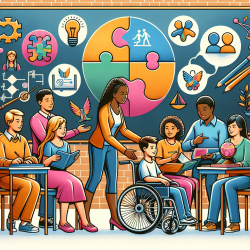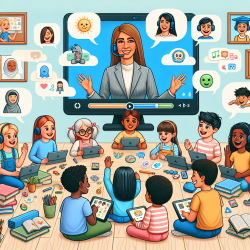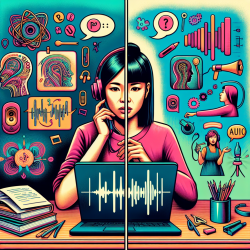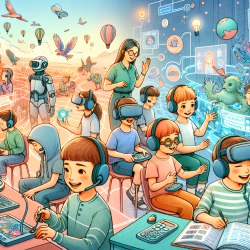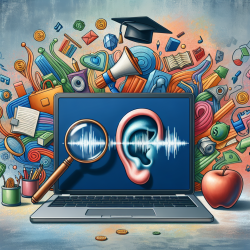Educating children and young adults who are deaf or hard-of-hearing presents unique challenges and opportunities for practitioners. Insights from a pivotal research article, "Educating Children and Young Adults Who are Deaf or Hard-of-Hearing in Canada: Challenges for the Nineties," provide valuable guidance for improving educational practices. This blog aims to help educators enhance their skills by implementing the outcomes of this research or encouraging further investigation into the subject.
The article provides an extensive overview of the education landscape for deaf and hard-of-hearing students in Canada, highlighting historical developments, current conditions, and future challenges. Key issues include the importance of recognizing the diverse needs of these students, the impact of cultural and linguistic considerations, and the evolving educational methodologies aimed at improving outcomes for this population.
One of the major takeaways for practitioners is the significance of adopting a culturally sensitive approach to education. The Deaf community, which aligns itself with Deaf culture, views itself as a distinct linguistic and cultural minority. This perspective underscores the necessity for educational programs to be inclusive and respectful of Deaf culture and American Sign Language (ASL) as a primary language of instruction.
The research also emphasizes the importance of individualized education plans (IEPs) that cater to the specific needs of each student. Practitioners are encouraged to work closely with parents, other educators, and the students themselves to develop comprehensive IEPs that address academic, social, and linguistic development.
Another critical aspect highlighted is the need for ongoing professional development for educators working with deaf and hard-of-hearing students. Staying informed about the latest research, educational technologies, and teaching methodologies is crucial for effectively supporting these students' learning journeys.
Furthermore, the article points to the benefits of bilingual education, where students are taught in both ASL and English. This approach not only supports the linguistic development of deaf and hard-of-hearing students but also helps in preserving Deaf culture. Educators are encouraged to explore and implement bilingual teaching strategies to enhance students' learning experiences.
In conclusion, the research article offers valuable insights and recommendations for educators seeking to improve their skills in teaching deaf and hard-of-hearing students. By embracing a culturally sensitive, individualized, and bilingual approach to education, practitioners can better support the academic and social development of these students. For those interested in delving deeper into the research and its findings, further exploration is highly recommended.
To read the original research paper, please follow this link: Educating Children and Young Adults Who are Deaf or Hard-of-Hearing in Canada: Challenges for the Nineties.



